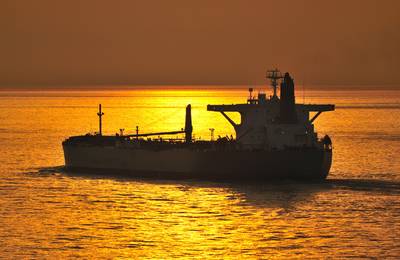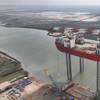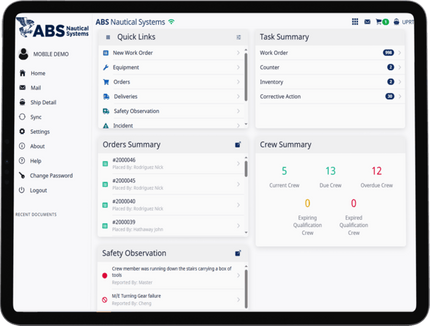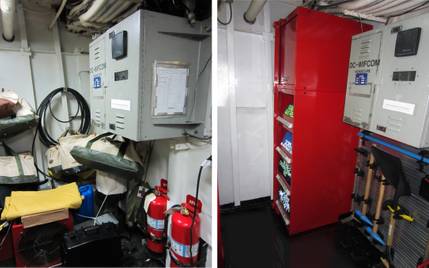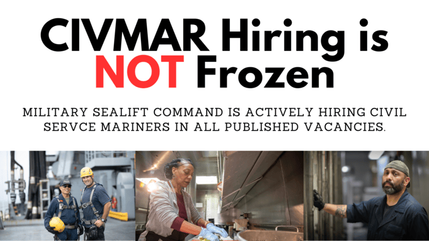U.S. Frets About Untrackable China Ships with Iran Oil
The White House is warning Chinese shipping companies against turning off their ships' transponders to hide Iranian oil shipments in violation of U.S. sanctions, two senior administration officials said.
"We've been messaging very heavily to the shipping companies, you don't want to do this, it's not worth it," said one official, who spoke to Reuters on condition of anonymity. "It's incredibly dangerous and irresponsible behavior."
China is the largest remaining buyer of Iranian oil after U.S. President Donald Trump reimposed sanctions on Tehran's main export. Trump tightened U.S. sanctions in May in an effort to drive Iran's oil sales to zero.
The sanctions are aimed at quashing Iran's nuclear ambitions, ballistic missile program and influence in Syria, Iraq and other countries. Its oil exports have fallen to less than 400,000 barrels per day from about 2.5 million bpd.
On Sept. 25, the U.S. imposed sanctions on five Chinese individuals and two Chinese COSCO Shipping Corp subsidiaries, saying they had shipped Iranian crude oil in violation of the sanctions.
Days later, 14 COSCO Shipping Tanker (Dalian) vessels, about one-third of its fleet, stopped sending location data from their automatic identification system (AIS) between Sept. 30 and Oct. 7, ship tracking data on Refinitiv Eikon showed.
The administration said on Tuesday it had independently confirmed that COSCO had been shutting off AIS on its ships.
All but three of the ships have become traceable since Reuters' report ran on Oct. 9. The latest locations for Very Large Crude Carriers (VLCC) Yuan Shan Hu and Cosglad Lake were still unavailable between Oct. 8 and Oct. 16, while Aframax-sized tanker Yang Mei Hu has been untraceable since Oct. 11, data showed.
COSCO Shipping Tanker (Dalian) said in an e-mail statement that none of its vessels had turned off their AIS controllers or stopped transmitting AIS signals.
"Dalian Tanker will continue to adhere to applicable laws and regulations in the conduct of its business operations," the company said.
The International Maritime Organization requires vessels to use transponders for safety and transparency. Crews can turn off the devices if there is a danger of piracy or similar hazards. But transponders are often shut off to conceal a ship's location during illicit activities.
'SHIP BY SHIP'
It was not clear what the Trump administration could do to stop the tankers from turning off transponders.
It has warned shipping companies, energy companies and port officials to be wary of trade in Iranian oil, in some cases telling them they could face sanctions for doing so.
The administration believes that sanctions are on the verge of causing an economic depression in Iran, one of the officials said.
But Iran has years of experience dealing with sanctions. Some analysts believe Tehran may be attempting to ride out the economic pain until the November 2020 U.S. presidential election, hoping Trump will lose and the next president will take a softer line on Tehran.
"If they calculate that there is going to be (a new president) and they are incorrect, that's bad," the second official said. "Because I don't think anybody thinks that they could make it another four years after next November under this kind of sanctions regime."
The Trump administration is watching illegal shipments even if it is not able to stop them, the second official said.
"We are literally going ship by ship at this point because each ship is incredibly important" to Iran's economy, the second official said.
Trump wants initial talks with Iranian President Hassan Rouhani, without preconditions, to see whether there is a chance for a deal to ease tensions between the two countries, one official said. The two leaders did not meet at last month's U.N. General Assembly gathering.
The United States said on Friday it was sending about 3,000 additional American military personnel to Saudi Arabia to bolster defenses after attacks on oil facilities last month, which were widely blamed on Iran. Tehran denies any role.
Reporting by Timothy Gardner



